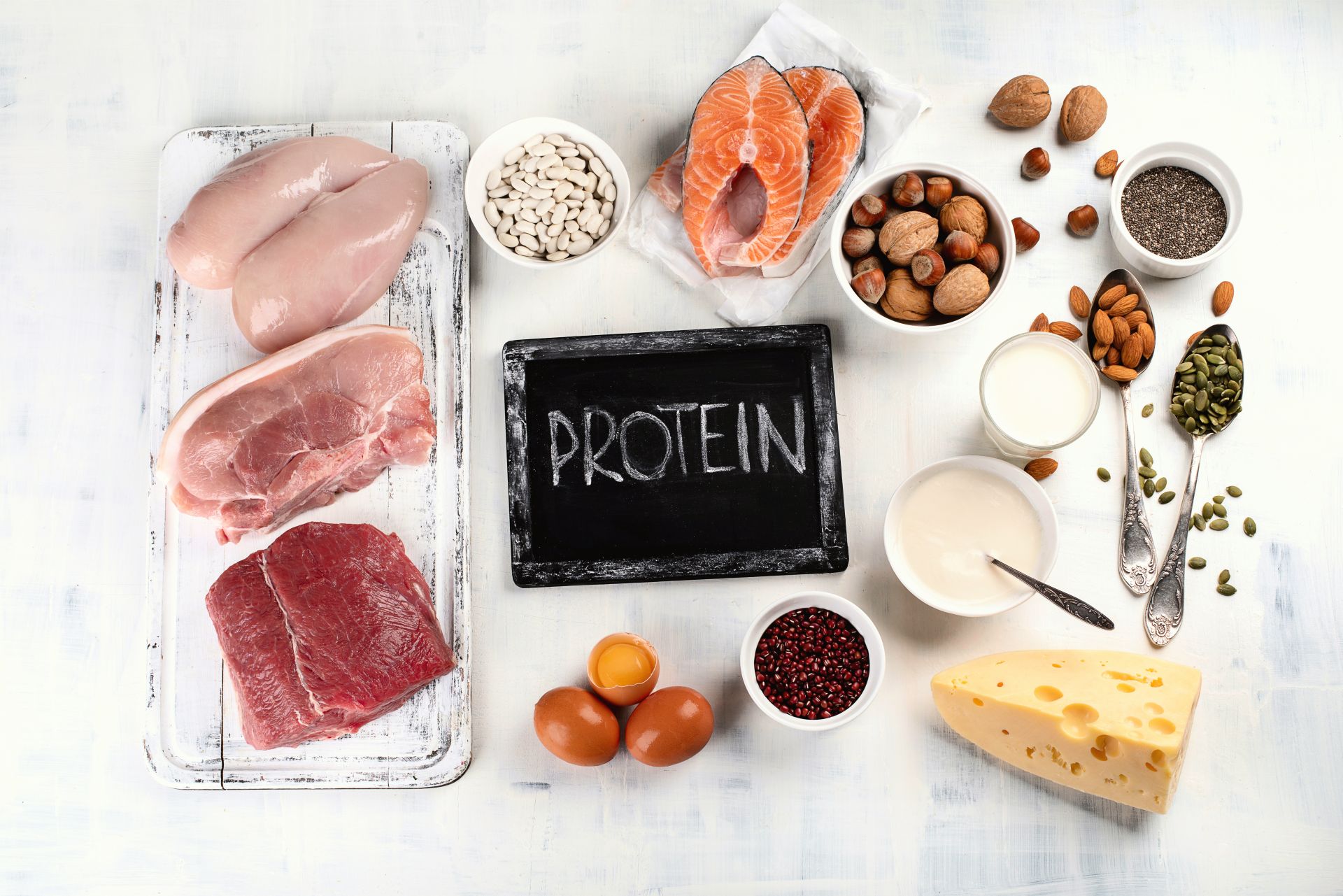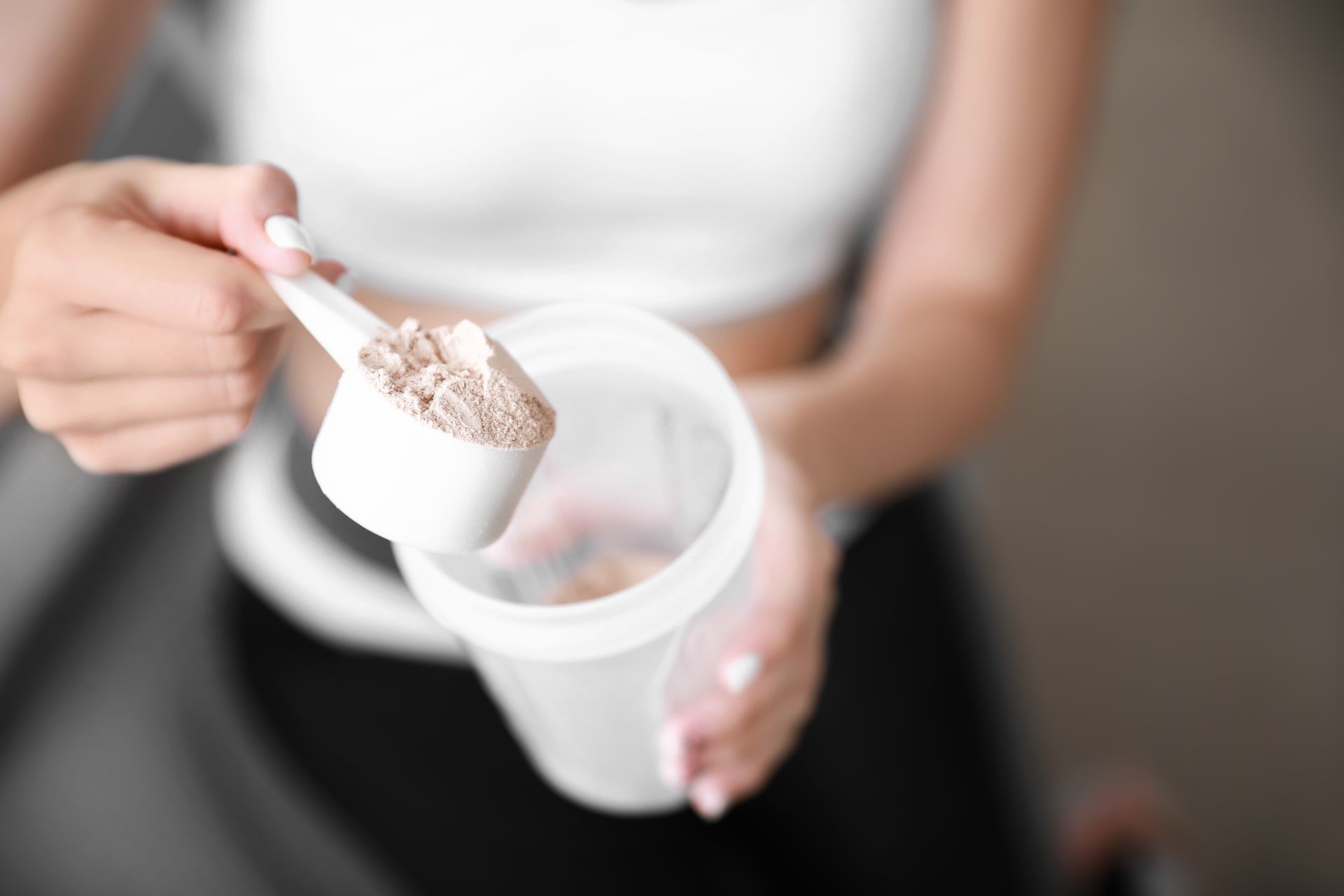heading_title

The desire to reduce body fat and improve the appearance of the figure is causing people to start regular physical activity and diet. In recent years, it has become more and more widely known that a high-protein diet helps reduce body fat, which is why many people today turn to protein nutrients. Let's find out exactly how protein conditioner affects the reduction of spare fat.
- Loss of muscle mass as a negative consequence of weight loss
- How to effectively maintain muscle mass on reduction?
- How much protein on a reduction diet?
- Protein conditioner for reduction - effects.
- Protein conditioner for reduction - when can it be helpful?
- Protein conditioner for reduction - how to use?
Loss of muscle mass as a negative consequence of weight loss
The results of the vast majority of weight loss studies show that up to 30% of the weight lost during a reduction diet comes from lean body mass, including muscle mass. Loss of muscle mass is most pronounced in people who follow very low-calorie and low-protein diets and do no strength training at all. Decline in muscle mass results in lower basal metabolic rate (PPM), weaker muscle strength and decreased physical performance. Adequate muscle mass is important not only for an attractive appearance, but also for health reasons. Low muscle mass has been linked to longer hospital stays, poorer quality of life and shorter survival times for patients, as well as decreased physical fitness (mobility) and increased postoperative complications. In addition, low muscle mass can increase the risk of cardiometabolic diseases such as type 2 diabetes, hypertension, stroke and metabolic syndrome, for example, in some people.
How to effectively maintain muscle mass on reduction?
Maintaining muscle mass is important for everyone, but it becomes especially important when athletes are trying to lose weight and improve physical performance at the same time. Maintaining lean body mass is also crucial for the elderly due to the importance of muscle mass to overall health and physical fitness (mobility). Strength training is one of the most important factors to help maintain muscle mass while on a weight loss diet. Regular strength training has been shown to mitigate the loss of muscle mass by stimulating muscle protein synthesis (MPS). In addition to this, it has also been proven that frequent protein supplementation on a reduction diet can increase the beneficial effects of strength training on MPS. Increased protein intake and regular strength training can therefore help maintain muscle mass during a calorie deficit reduction diet.
How much protein on a reduction diet?
Adequate protein intake during fat reduction is essential to not lose muscle tissue and to maintain good health. Studies have shown that reduction diets with a total daily protein content of about 1.6 g for each kg of total body weight (g/kg bw) not only increase the feeling of satiety, but also result in greater loss of body weight and spare fat and promote the preservation of muscle mass. The recommended daily amount of protein for reduction for people who regularly perform strength training ranges from 1.6 to 2.2 g/kg bw. Overweight or obese beginners who want to recomposition their body shape (i.e. reduce body fat and increase muscle mass at the same time) should provide 2.6 to 3.5 g of protein per kg of lean body mass each day.

Protein conditioner for reduction - effects.
A whey protein nutrient (such as WPC or WPI) has been shown to stimulate MPS and help maintain muscle mass better than other protein sources. A well-chosen protein nutrient for reduction can increase the feeling of satiety and suppress appetite and energy intake from food, thus helping to effectively reduce body fat. Protein is the nutrient that has the greatest effect on postprandial satiety of all macronutrients (protein > carbohydrates > fat). It has been shown that the concentration of satiety hormones circulating in the blood increases after consuming about 30 g of protein in a meal. In addition, a diet high in protein increases energy expenditure due to the increased thermal effect of food. The results of a recent meta-analysis of 35 randomized controlled clinical trials (RCTs) involving 1,902 adults showed that a whey protein-based protein supplement (e.g., WPC or WPI) can have a beneficial effect on fat reduction. The protein nutrient was found to reduce waist circumference, body fat mass and BMI, while also increasing lean body mass (including muscle mass) when a person systematically performed strength training. Besides, when regularly included in the diet, protein nutrient for reduction activates anabolic processes throughout the body and can accelerate the rate of post-workout recovery after intense strength training.
Protein conditioner for reduction - when can it be helpful?
The increased demand for protein in people who regularly train at the gym means that protein conditioner for fat reduction can help meet these increased needs of the body. Protein conditioner for reduction will be perfect for people who have great difficulty in providing adequate amounts of protein from food. The aforementioned difficulties in consuming sufficient protein from food may be due to a weakened appetite, health problems (such as allergies or food sensitivities), adherence to a special elimination diet (such as a fruit and vegetable or vegan diet), as well as an excess of responsibilities and lack of time to prepare several properly balanced meals during the day.
Protein conditioner for reduction - how to use?
Which protein nutrient for reduction? For the vast majority of people, whey protein nutrients, namely Whey Protein Concentrate (WPC) and Whey Protein Isolate (WPI ), will work well. Depending on body size and all-day energy and protein requirements, a protein supplement for reduction providing about 40 grams of protein per serving should meet the recommended daily protein intake for the vast majority of people training at the gym to maintain muscle mass and reduce spare fat. A protein supplement for reduction should be taken in the amount of about two scoops so as to provide close to 40 g of protein per meal, especially post-workout.
Sources:
-
Wirth J, Hillesheim E, Brennan L.: The Role of Protein Intake and its Timing on Body Composition and Muscle Function in Healthy Adults: A Systematic Review and Meta-Analysis of Randomized Controlled Trials. J Nutr. 2020 Jun 1;150(6):1443-1460. https://pubmed.ncbi.nlm.nih.gov/32232404/
-
Hansen TT, Astrup A, Sjödin A.: Are Dietary Proteins the Key to Successful Body Weight Management? A Systematic Review and Meta-Analysis of Studies Assessing Body Weight Outcomes after Interventions with Increased Dietary Protein. Nutrients. 2021 Sep 14;13(9):3193. https://pubmed.ncbi.nlm.nih.gov/34579069/
-
Nunes EA, Colenso-Semple L, McKellar SR, et al: Systematic review and meta-analysis of protein intake to support muscle mass and function in healthy adults. J Cachexia Sarcopenia Muscle. 2022 Apr;13(2):795-810. https://pubmed.ncbi.nlm.nih.gov/35187864/
-
Sepandi M, Samadi M, Shirvani H, et al: Effect of whey protein supplementation on weight and body composition indicators: A meta-analysis of randomized clinical trials. Clin Nutr ESPEN. 2022 Aug;50:74-83. https://pubmed.ncbi.nlm.nih.gov/35871954/
-
https://www.ais.gov.au/nutrition/supplements/group_a#isolated_protein_supplement
-
https://examine.com/articles/dieting-with-a-side-of-extra-protein/
 ⮜ Previous article
⮜ Previous article
Is it worth it to use a protein supplement before bedtime?
 Next article ⮞
Next article ⮞